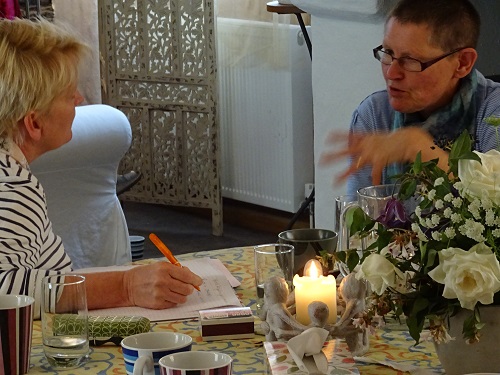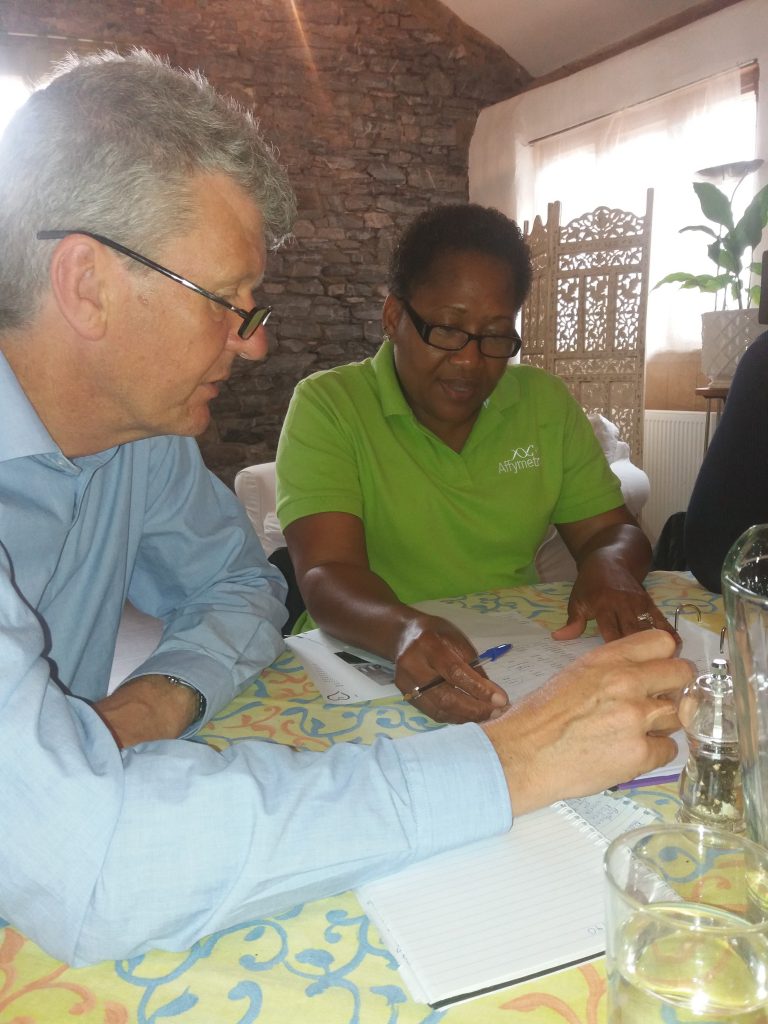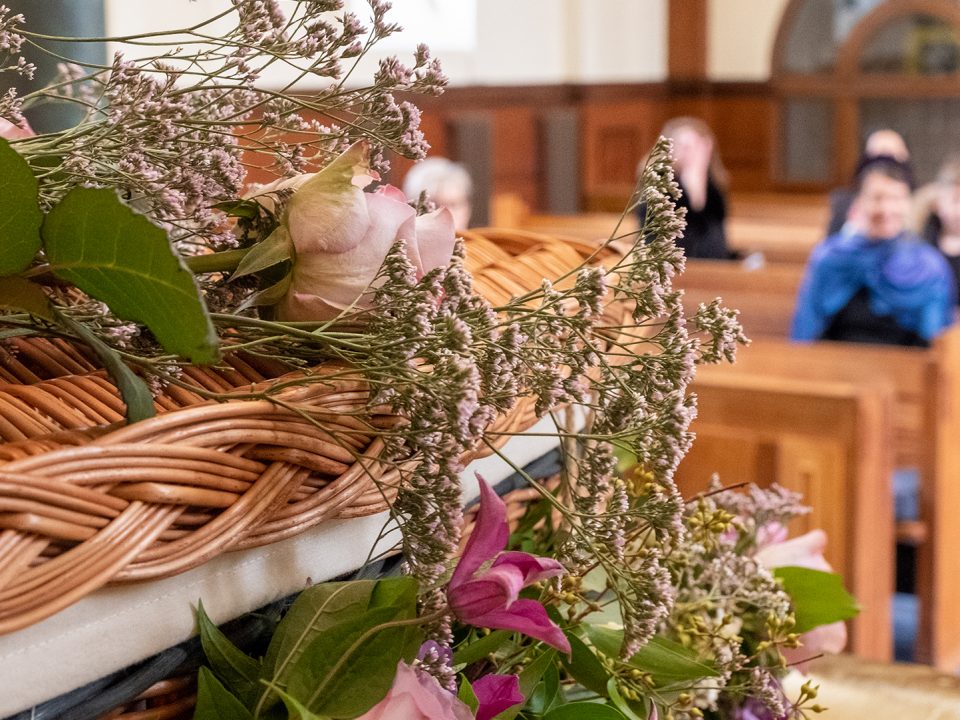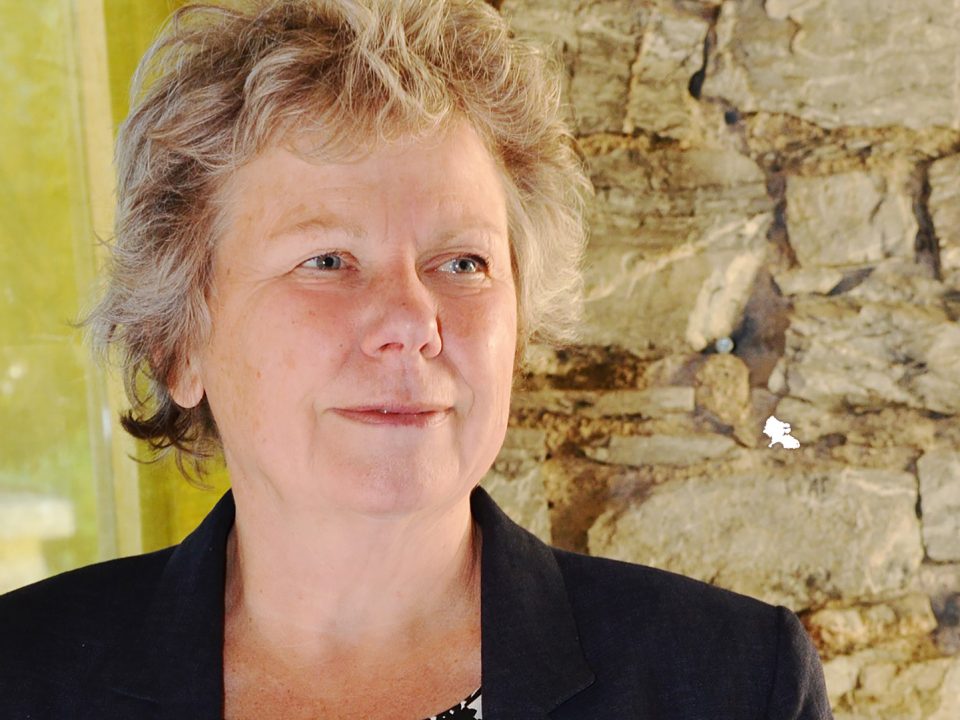Good funeral arranging is the key to a good funeral

When my mother died in Leicester I experienced a funeral arranging interview which was just a tickbox exercise. The arranger asked me nothing about her, assumptions were made about hearses and limousines and I was told I could only have one of the coffins they normally stock (even though she knew I was a funeral director)! It was a sterile experience. We moved to another funeral director. Very interesting to be on the other side of it.
Funeral arranging can be so much more than this. We first ask about what has happened to get a sense of things and the feelings that are around, then we invite those present, often a number of people, to tell us about the person who has died. This often results in 20 to 30 minutes of them talking about the person – we may be the first stranger they have been able to do this with, someone to whom all the stories can be regaled – the pride they have in the person – the love they have for them – and the flaws and foibles, difficulties too – it’s a sweet moment.
Not only does this give a chance to reconnect with the person who has died, but also it creates a context for the funeral decisions and sparks ideas about what might make the funeral special.
When all aspects of the life and character are discussed, a bigger view of the person emerges and ideas with it about what the funeral might look like, what things are most important to represent about the person, how informal or formal, the right kinds of venue, coffin and cars, the most appropriate person to be the celebrant or minister, the type of funeral they want to have
When this happens, the family and friends take ownership of the funeral, they have discovered and created it themselves, they have had an opportunity to do something really positive and creative for the person they have lost – we have just been the facilitators and the means of then bringing that to fruition.
They key to being able to provide a service like this is the quality of the listening. We practice active listening skills where we leave the agenda as much as possible with the family. We reflect back what they have said, we leave space for them to think and form thoughts and ideas, we ask a few questions, trusting that over a couple of hours the information we need will come to us, and if not we can do a roundup at the end.
We never use a tick list to be completed in an hour or so. As soon as you ask a number of questions, the person you are talking to will just wait for the next question. This needs to be a conversation, not a Q & A session.
It is the quality of this listening that is the bedrock of successful funeral arranging, and the result of good funeral arranging is for every funeral to be as different as the people for whom they are being arranged. We believe that the care and attention put into this by all concerned helps the grieving process. Clare Rayner, the ‘agony aunt’ who wrote the foreword to our book ‘We Need To Talk About The Funeral’ talked about ‘secret disappointment’ in relation to funerals, by which she meant that if it doesn’t go well it is too painful to talk about it, to complain, and it adds to the grief.
.

So being a good funeral arranger is a complex role requiring skills in drawing people out to enable them to think deeply about someone and to be gently guided to construct the funeral themselves. It requires a completely different attitude to sitting there as an expert, it makes the funeral arranger a “a guide for self-organisation of the bereaved, based on creativity and improvisation, enabling persons to practice rituals or to behave in ways in keeping with their culture and lifestyle. “But ‘an intimate, personal atmosphere’ at the funeral, cannot be created by the undertaker on his own. The involvement of friends and relatives in the arrangement and organisation – not only of the funeral – seems to be necessary.” Winkel 2001
Here’s some feedback we value as a funeral director:
“Heart & Soul Funerals handled arrangements for the funeral of our mother. We selected them as they are different to the normal, traditional funeral director firms. They are very relaxed and unstuffy – ideal at a sensitive time. Their knowledge and suggestions gave confidence that nothing would be overlooked. They listened to and were open to our wishes – without any attempts to sell us anything we didn’t need or want. Throughout they were transparent and open with costs. Myself and my brothers were delighted with the celebration of our mother’s life that resulted.”
Matthew Cushen




